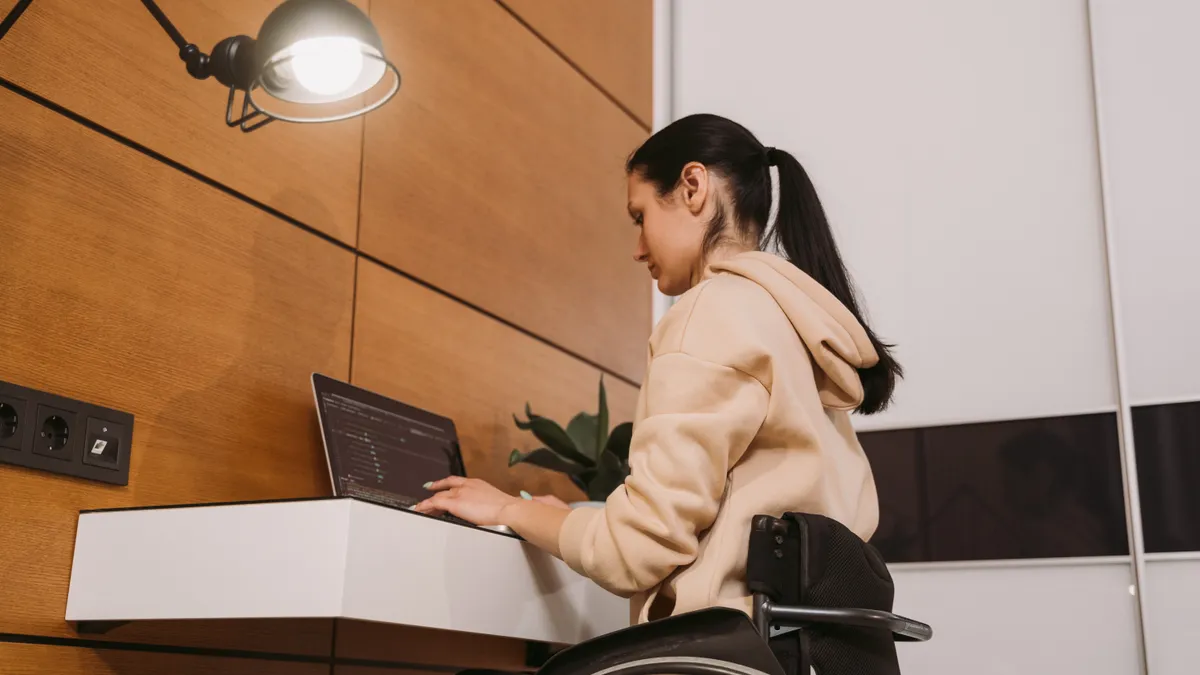Dive Brief:
- HR leaders are not in touch with employees' feelings about work arrangements, a recent study suggests. While the HR leaders surveyed in TinyPulse's Q3 State of Employee Engagement survey felt that hybrid and remote work were nearly equally emotionally exhausting for employees, employees surveyed said hybrid work was much more emotionally exhausting — nearly twice as emotionally exhausting as remote work.
- The survey revealed a number of other findings. HR leaders are more likely to be burned out and less likely to be "flourishing" compared with other employees; HR leaders were nearly twice as likely to say employers kept their promises during the return-to-work shift; and employees who had unfavorable and favorable attitudes toward returning to work both listed "work efficiency" as the primary reason for their feeling, suggesting that employees' experiences of effectiveness in their work environment vary widely.
- The survey, which took place in August, collected responses from 621 HR leaders and 100 employees. Eighty percent of respondents lived in the U.S.
Dive Insight:
While only 100 employees were surveyed for the TinyPulse study, the gap in emotional exhaustion reported by hybrid and remote workers — and the difference in how it is perceived by HR — may be a red flag for workplaces and a trend to watch as work policies continue to evolve.
Each work arrangement seems to offer its own particular potential for worker exhaustion.
In a Forbes article published in April, Robert Logemann, a corporate executive and member of the Forbes Business Council, wrote that "the line separating work and home [was] all but erased during the pandemic," causing many to work longer and harder, and that videoconferencing fatigue was wearing workers out.
On the other hand, studies have shown that long commutes have a strong influence on worker unhappiness. "The evidence is clear: No matter how much you love your job or your home, a long commute will make you unhappy, and that unhappiness will never go away," Minda Zetlin wrote for Inc.com.
As hybrid work becomes more common and more studied, employers will gain a better understanding of what elements of the arrangement cause employees stress. An early study on hybrid work dysfunction from United Kingdom-based recruitment firm Robert Walters found that 40% of surveyed workers said their employers' hybrid working arrangements could be improved.
"Many organisations are now operating with hastily constructed working models that contain hidden gaps, risks, inefficiencies and threats," the study noted. "As a result, many are missing out on achieving the full benefits of a highly effective hybrid working model." Among other findings, the Robert Walters study found that maintaining a cohesive culture can be a challenge.
One intriguing finding is that despite the disparity in exhaustion reported, remote and hybrid work arrangements remain equally popular among employees, with fully in-person work nearly as popular.
The takeaway? Workers are individuals, with wide-ranging preferences; flexibility may be needed to satisfy a plurality of them.














